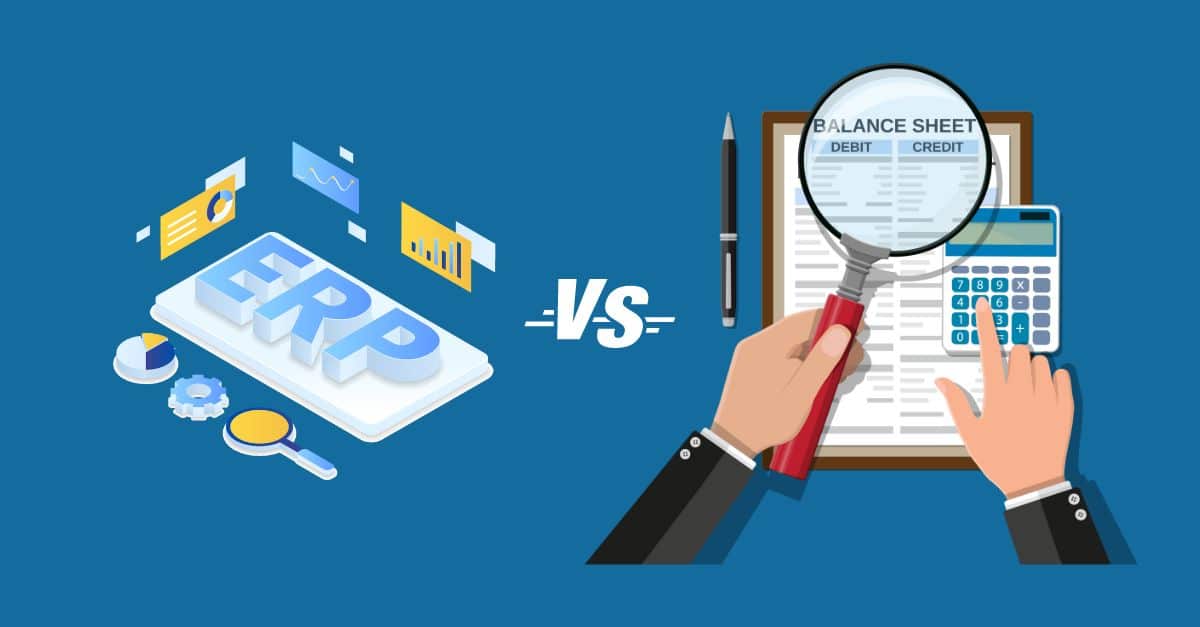
How Scalability and Growth in Business are Supported by Modern ERP Systems
Businesses are often preoccupied with striving to increase profits and lose sight of the factors that contribute to the gain. It might be challenging to choose whether to upgrade your Enterprise Resource Planning (ERP) program.
Many organizations believe that their existing solution is working “fine” or that they can deal with the areas where it falls short, but there are costs involved in sticking with outdated software, and you could be losing out on more opportunities than you realize.
Businesses now grapple with technology advancements at a rate never previously seen. B2B manufacturers are facing the problem of integrating these cutting-edge and innovative apps into their legacy systems as they migrate to the cloud and add new auxiliary systems like global logistics and e-commerce applications.
They overlook the significance of fully working enterprise resource planning solutions and seldom give the system’s upgrading with fresh features any thought. Finally, when they decide to upgrade, they start to worry about the disruptions that could result, which could cause losses that are great enough to overshadow the advantages of an ERP system with features.
You shouldn’t neglect upgrades in the long run, at least not since they bring increased functionality and other crucial improvements. In this article, we’ll go through the advantages of updating your ERP system and why doing so is crucial. Manufacturers could find it challenging to take use of the capability of more contemporary technologies like cloud apps without updating and modernizing their ERP systems.
The following are some simple reasons why modernizing your ERP system is a must:
Better Connectivity
Software updates can enhance connection by connecting systems, automating essential tasks, and increasing responsiveness. This results in enhanced demand forecasting, precise inventory management, and cost optimization.
Upgrades may assist to reduce silos and communication issues if you are presently using many software solutions to do activities, or they may even provide you the capacity to complete tasks with only one solution. Additionally, when all business data is sourced from a single system, data accuracy and dependability increase.
Higher Productivity
Modern process automation will operate more efficiently than outdated, sluggish, or unconnected systems. For your team to perform more effectively, most platforms customize the user experience across departments and give a standardized interface. Instead of putting operations on pause and playing catch-up, logistics directors can adapt to the changes proactively and maintain smooth operations with access to real-time supply chain data.
Reduced Cost:
Upgrades can frequently assist in reducing the time, effort, and resources invested in everyday, routine chores, freeing up workers to concentrate on more important work. Because they are hosted in the cloud, modern ERP systems have lower initial costs.
Since the majority of contemporary software is updated digitally, modern software typically requires businesses to pay regular fees in order to access the ERP software. This frees up resources. Additionally, it enables you to streamline unnecessary tasks, freeing up workforce resources for high-priority tasks.
Easier Planning and Reporting
You can get new reports and reporting tools as well as other capabilities that can help with forecasting when you upgrade your system. Dashboards and interactive reports are aspects of a lot of more recent software that may be included in your solution or accessible as an add-on.
Upgrades to reporting can boost efficiency overall by boosting precision and dependability.
Encourages Growth
Modern ERP systems are essential to the development of your company. They dismantle organizational boundaries that separate teams from data sources, revolutionizing how your business communicates and makes decisions.
The scalability of cloud-based ERP systems is inherent since they are not constrained by the on-premises infrastructure of a company’s physical location. Our company could be passing up on a new feature that would assist to streamline a procedure, provide insight into data that wasn’t previously available, and more.
Integration Improvements and collaborations
ERP integration is essentially the act of integrating your organization’s ERP system with other software or apps so that they operate harmoniously and in unison. Modern ERP solutions that are cloud-based can help businesses take use of this feature.
If your departments are still utilizing different software programs, you need an ERP system to synchronize operations and provide your staff access to information that is kept in a single central database whenever they need it. Better internal communication is made possible by data unification.
Without examination, upgrading your ERP system might turn out to be a disaster. Therefore, start by determining your business needs and whether you need to update your ERP system. We can assist you with the analysis of this and provide guidance for the ERP installation.
We provide a large selection of ERP software solutions at SMB Solutions.
